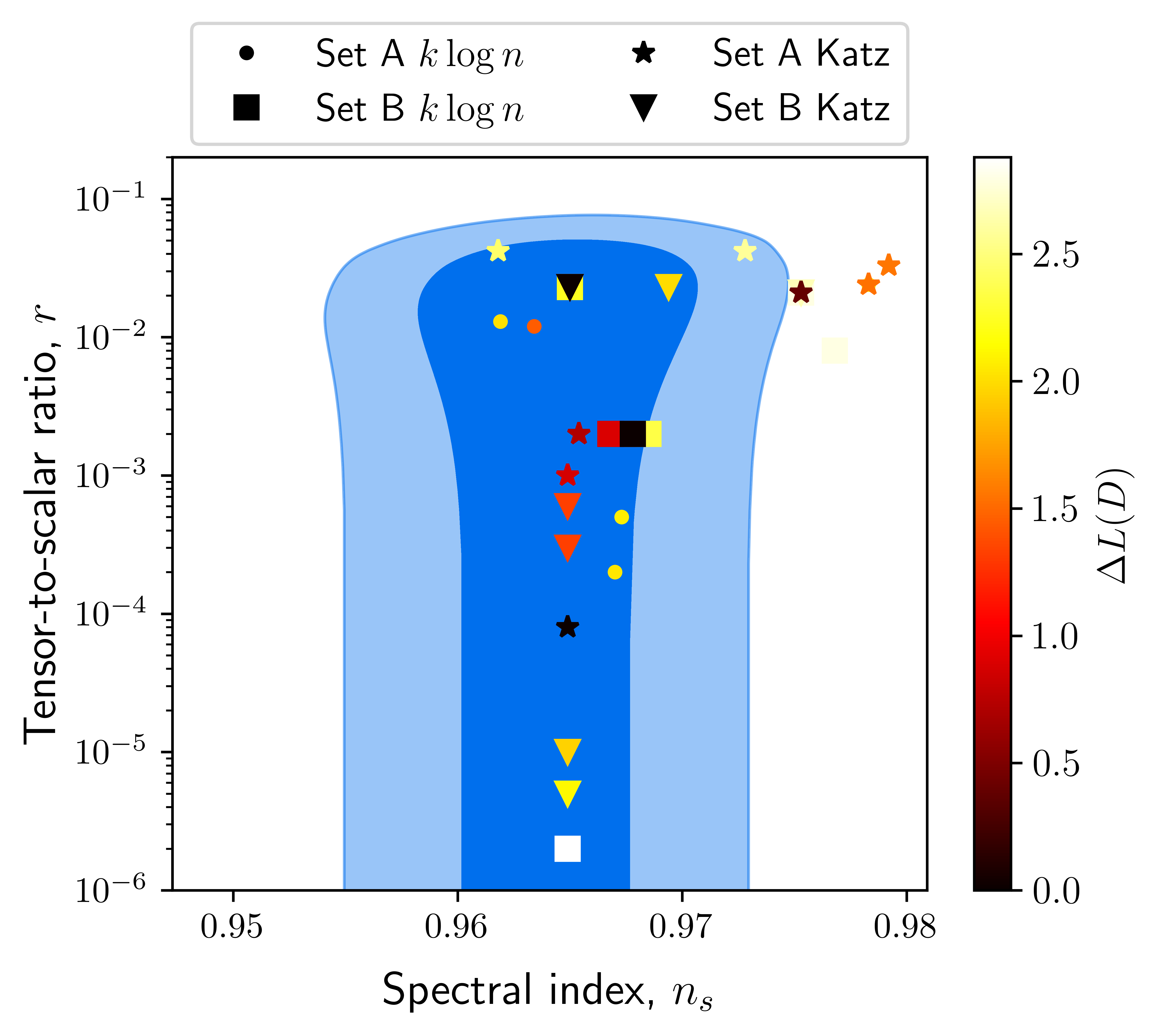Optimal inflationary potentials
Published in Physical Review D, 2023
Recommended citation: Tomas Sousa, D.J. Bartlett, H. Desmond and P.G. Ferreira (2024). "Optimal inflationary potentials." Phys. Rev. D 109, 083524.
Abstract
Inflation is a highly favoured theory for the early Universe. It is compatible with current observations of the cosmic microwave background and large scale structure and is a driver in the quest to detect primordial gravitational waves. It is also, given the current quality of the data, highly under-determined with a large number of candidate implementations. We use a new method in symbolic regression to generate all possible simple scalar field potentials for one of two possible basis sets of operators. Treating these as single-field, slow-roll inflationary models we then score them with an information-theoretic metric (“minimum description length”) that quantifies their efficiency in compressing the information in the Planck data. We explore two possible priors on the parameter space of potentials, one related to the functions’ structural complexity and one that uses a Katz back-off language model to prefer functions that may be theoretically motivated. This enables us to identify the inflaton potentials that optimally balance simplicity with accuracy at explaining the Planck data, which may subsequently find theoretical motivation. Our exploratory study opens the door to extraction of fundamental physics directly from data, and may be augmented with more refined theoretical priors in the quest for a complete understanding of the early Universe.
 The predicted tensor-to-scalar ratio and spectral index for the ten best models in each analysis (Tables I to IV). The 68% and 95% CL regions from Planck and Bicep/Keck are shown in blue. We colour the points by the change in description length relative to the optimal model for each analysis, such that darker points indicate better potentials.
The predicted tensor-to-scalar ratio and spectral index for the ten best models in each analysis (Tables I to IV). The 68% and 95% CL regions from Planck and Bicep/Keck are shown in blue. We colour the points by the change in description length relative to the optimal model for each analysis, such that darker points indicate better potentials.
